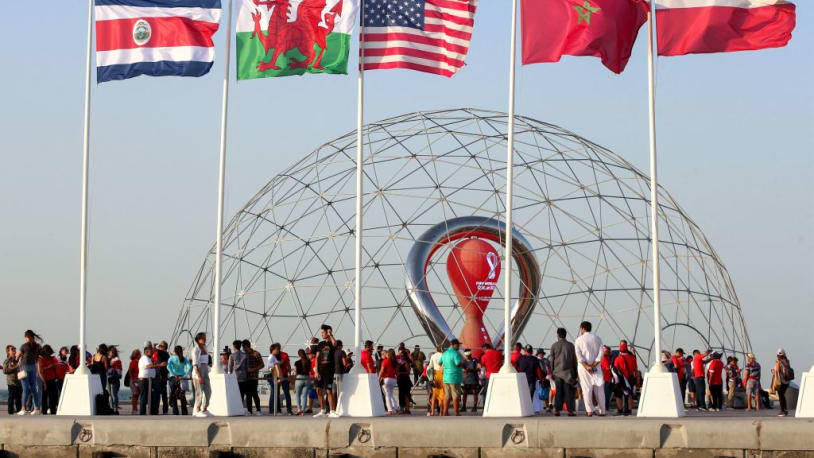
Why activists are skeptical of Qatar’s carbon-neutral World Cup
Leading up to the World Cup, Qatar pledged to make the event the first carbon-neutral World Cup in history. In practice, there have been reasons to doubt the validity of its claims. Last year, FIFA and the event organizers estimated that the World Cup would release 3.6 million tons of carbon dioxide, more than any recent World Cup or Olympics, and this is likely an underestimate, reports The Economist.
Qatar’s World Cup may be emitting more than predicted. The stadiums are air-conditioned due to the country’s extreme heat. Also, Qatar has been operating a shuttle flight service to the games because of the lack of accommodations for fans. It is estimated that 500 flights fly out of Doha daily, amounting to between 6,000 and 8,000 tons of CO2 emissions, per BBC.
For the tournament to be carbon-neutral, Qatar needs to offset the emissions in some way. The country has said that it is purchasing carbon credit to do just this, however, a report by Carbon Market Watch found that the purchased credits are for wind and hydropower projects in Serbia and Turkey that would already have been built. “Buying credits from these projects doesn’t make any difference to emissions because it just sends money to a project that doesn’t need the extra revenue,” commented Gilles Dufrasne, a researcher for Carbon Market Watch.
This is another controversy in the ongoing list against Qatar. “The tournament has been labeled as the first ‘fully carbon neutral FIFA World Cup tournament,’ meaning its overall impact on the planet should be zero,” said an open letter to FIFA from concerned players. “But that’s not true.”
Leading up to the World Cup, Qatar pledged to make the event the first carbon-neutral World Cup in history. In practice, there have been reasons to doubt the validity of its claims. Last year, FIFA and the event organizers estimated that the World Cup would release 3.6 million tons of carbon dioxide, more than any…
Leading up to the World Cup, Qatar pledged to make the event the first carbon-neutral World Cup in history. In practice, there have been reasons to doubt the validity of its claims. Last year, FIFA and the event organizers estimated that the World Cup would release 3.6 million tons of carbon dioxide, more than any…